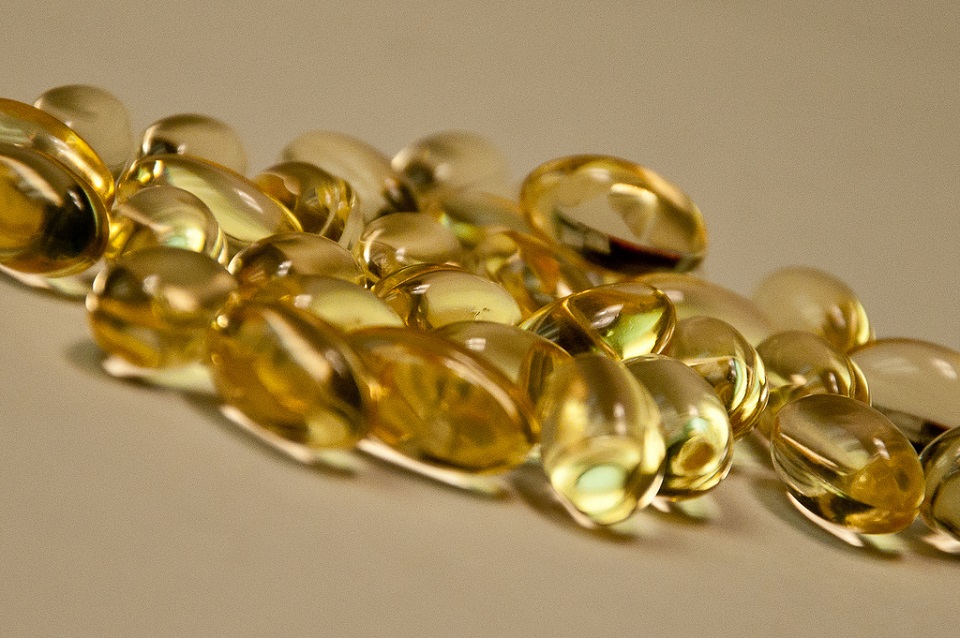
Oxidative stress and free radicals
This recent study “Vitamin C and E supplementation alters protein signaling after a strength training session, but not muscle growth during 10 weeks of training.” published in the The Journal of Physiology is one of several studies in recent years that aims to examine any possible positive or negative effects of using antioxidant vitamin supplements in combination with aerobic exercise or weight training. The purpose of the study was to examine the effects of vitamin supplementation on strength and muscle mass among weight training young healthy men and women.
Since Vitamin C and E are both antioxidants which are substances that reduce oxidative stress by neutralizing free radicals. and since free radicals are substances formed when oxygen is metabolized in the body and does increase with oxygen-consuming activities such as exercise. The hypothesis is that increasing the intake of antioxidants together with exercise these would have positive effects. This certainly would seem to be a logical and reasonable hypothesis. That exercise strains your body with oxidative stress making it require more vitamins to counteract this oxidative stress, but is it really so?
Method and Results
The study divided the young men and woman into two groups, one placebo and one with a vitamin supplement. Both groups gained an equal amount of muscle mass after the ten weeks of strength training, but the strength increases were actually somewhat less in the vitamin group.
The researchers also saw a reduction in signaling protein thought to be involved in muscle growth and gene transcription in the vitamin group. It would, therefore, appear that anabolic signaling is sensitive to oxidative stress which implies that the reduction of oxidative stress also possibly reduces the anabolic signaling. And this has also been seen in studies concerning cardio exercise.
In a broader context
There have been many studies on this topic in recent years and most studies actually indicate, opposite to popular notion, that vitamin C and E especially, decrease physiological abilities to adapt and respond to training.
The 2008 study “Oral administration of vitamin C decreases muscle mitochondrial biogenesis and hampers training-induced adaptations in endurance performance.” conducted on both mice and humans, indicated that vitamin C supplementation made VO2 Max increments less for mice but showed no statistically significant effect among the men (probably due to too few participants). Another study published last year “Antioxidant supplementation reduces skeletal muscle mitochondrial biogenesis” tested alpha -lipoic acid (ALA) and vitamin E supplementation in rats and the researchers saw an inhibitory effect on mitochondrial adaptations to endurance training.
These studies on antioxidant supplementation and exercise hardly provide a landslide victory for those advocating an increased intake of vitamin supplements to stay healthy and increase recovery. Actually, on the contrary, they seem to be either useless or even worse than useless.
A term often mentioned in this context is something called “hormesis” which refers to various types of stress factors that in large amounts would be harmful but can actually be beneficial in moderation. By this logic, the acute exercise-related increase in oxidative stress would actually be something positive, while in the long run, it would be unhealthy with high oxidative stress implicated in many diseases.
It should be underlined here that we are talking about supplementation of antioxidants beyond the recommended daily allowance intake and not vitamins from natural sources via food. And if we are to take some advice from these studies, well, it would certainly not be to avoid natural sources of vitamins such as vegetables and fruits – proven to be healthy. It would instead be to skip those vitamin supplements as they probably do not improve your health or your results from exercising or lifting weights.
Aim:
This study investigates the effects of vitamin C and E supplementation on acute responses and adaptations to strength training.Method:
Thirty-two recreationally strength-trained men and women were randomly allocated to receive a vitamin C and E supplement (1000 mg/d and 235 mg/d, respectively) or placebo for 10 weeks. During this period the participants trained heavy-load resistance exercise four times per week. Muscle biopsies from m. vastus lateralis were collected, and 1 repetition maximum (1RM) and maximal isometric voluntary contraction force (MVC), body composition (dual-energy X-ray absorptiometry), and muscle cross-sectional area (magnetic resonance imaging) were measured before and after the intervention. Furthermore, the cellular responses to a single exercise session were assessed midway in the training period by measurements of muscle protein fractional synthetic rate and phosphorylation of several hypertrophic signalling proteins. Muscle biopsies were obtained from m. vastus lateralis twice before and 100 and 150 minutes after the exercise session (4×8RM, leg press and knee-extension).Results:
The supplementation did not affect the increase in muscle mass or the acute change in protein synthesis, but it hampered certain strength increases (biceps curl). Moreover, increased phosphorylation of p38 MAPK, ERK1/2 and p70S6K after the exercise session was blunted by vitamin C and E supplementation. The total ubiquitination levels after the exercise session, however, were lower with vitamin C and E than placebo.Conclusion:
Vitamin C and E supplementation interfered with the acute cellular response to heavy-load resistance exercise and demonstrated tentative long-term negative effects on adaptation to strength training.
______________________________











![OpenAI. (2025). ChatGPT [Large language model]. https://chatgpt.com](https://www.illustratedcuriosity.com/files/media/55136/b1b0b614-5b72-486c-901d-ff244549d67a-350x260.webp)
![OpenAI. (2025). ChatGPT [Large language model]. https://chatgpt.com](https://www.illustratedcuriosity.com/files/media/55124/79bc18fa-f616-4951-856f-cc724ad5d497-350x260.webp)
![OpenAI. (2025). ChatGPT [Large language model]. https://chatgpt.com](https://www.illustratedcuriosity.com/files/media/55099/2638a982-b4de-4913-8a1c-1479df352bf3-350x260.webp)








